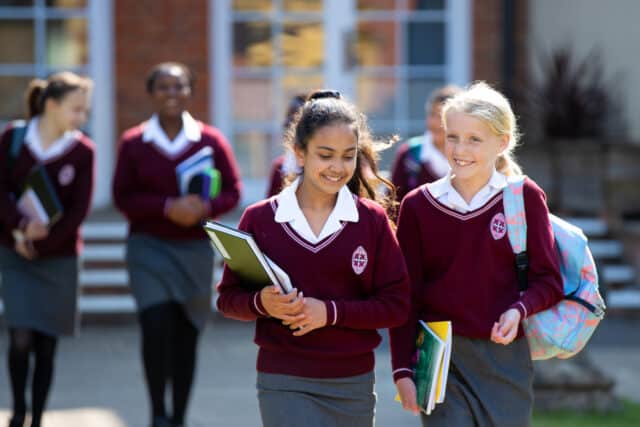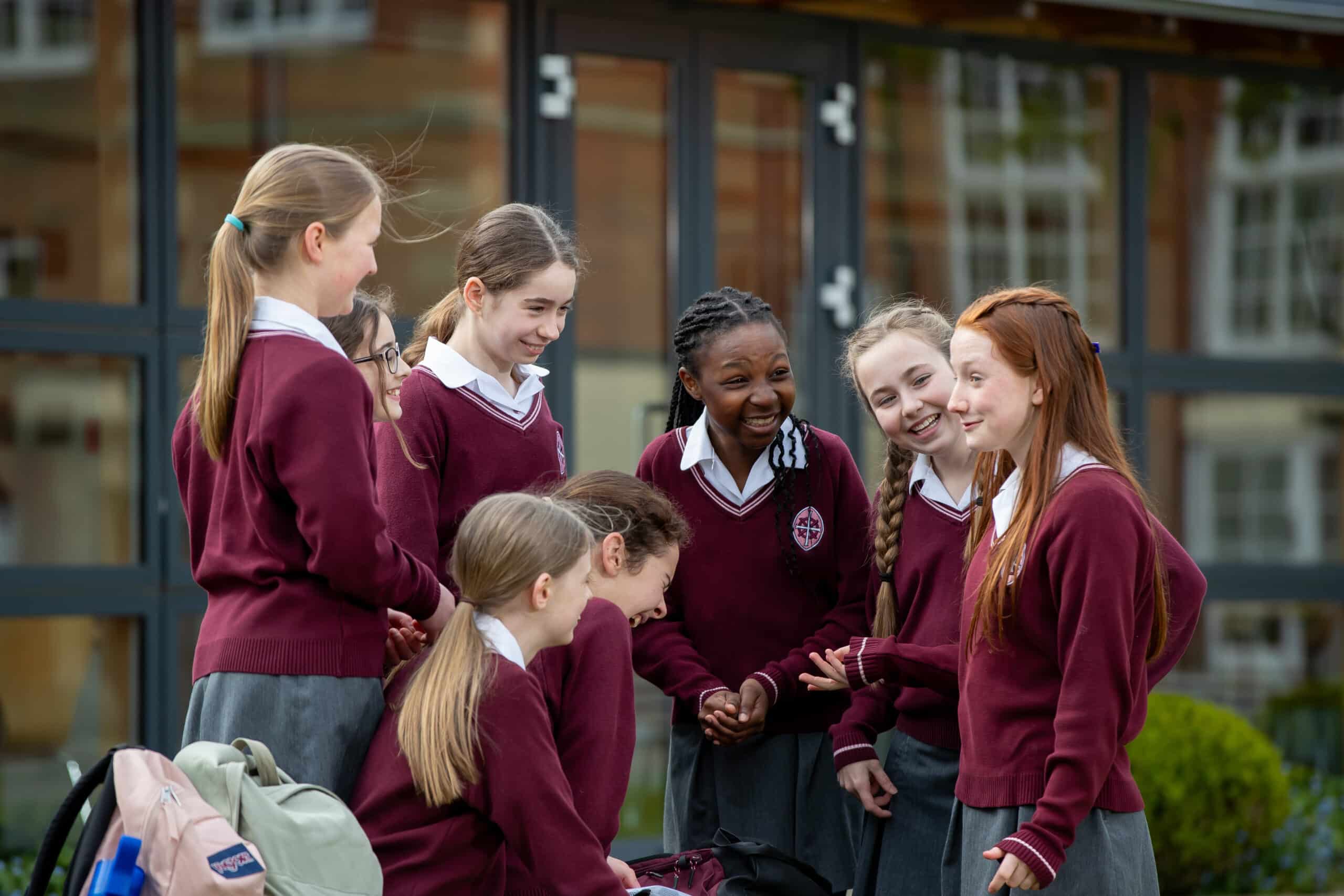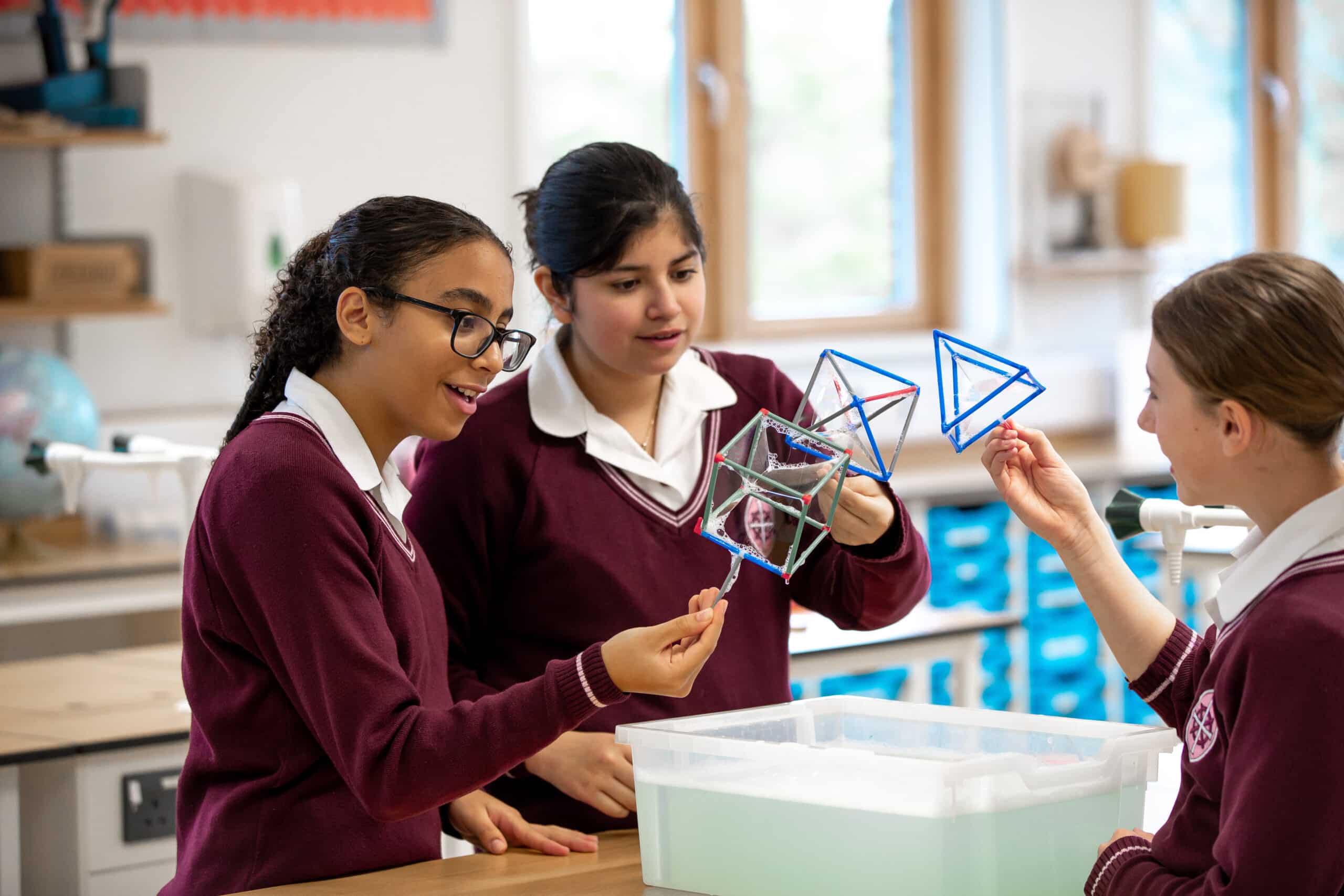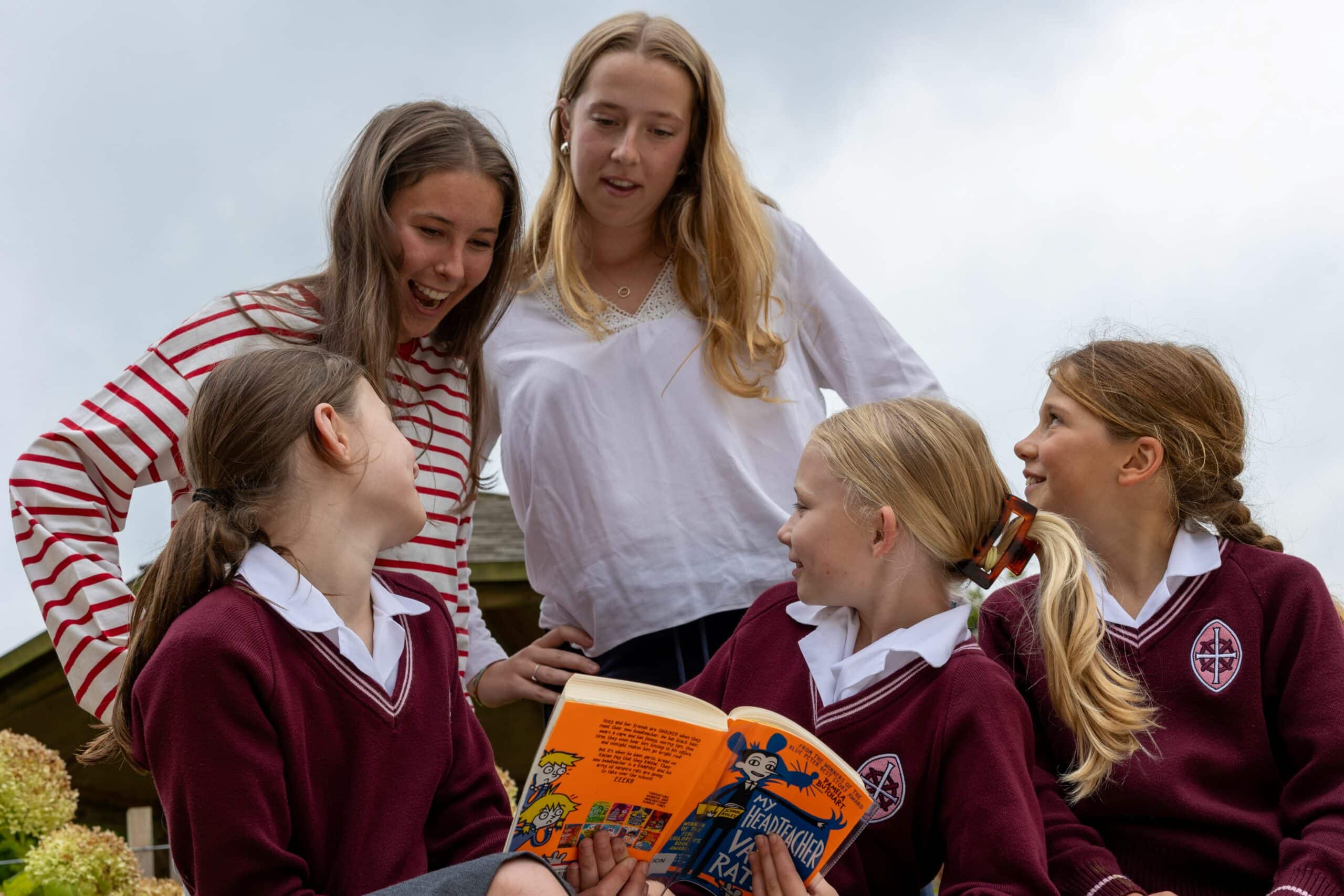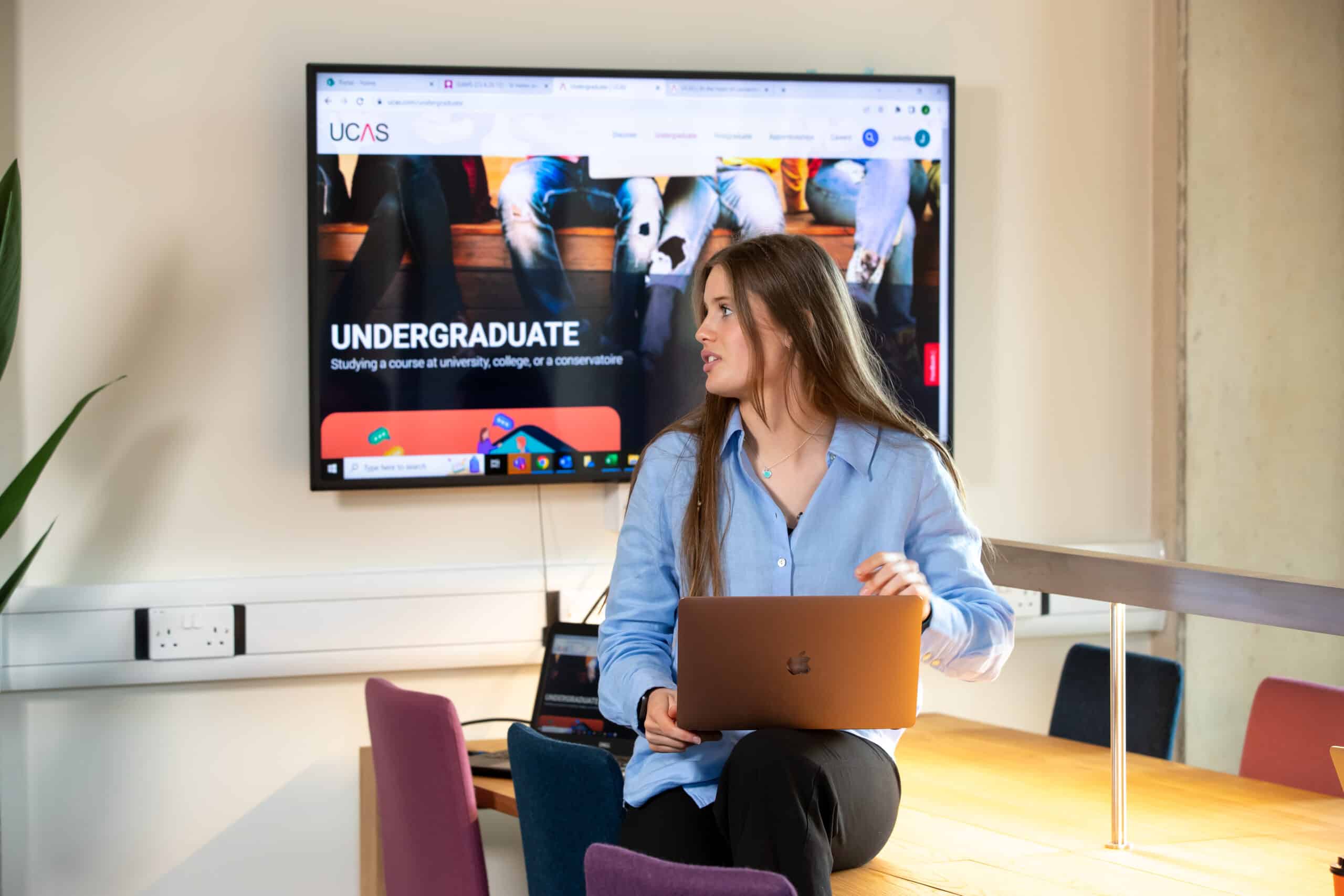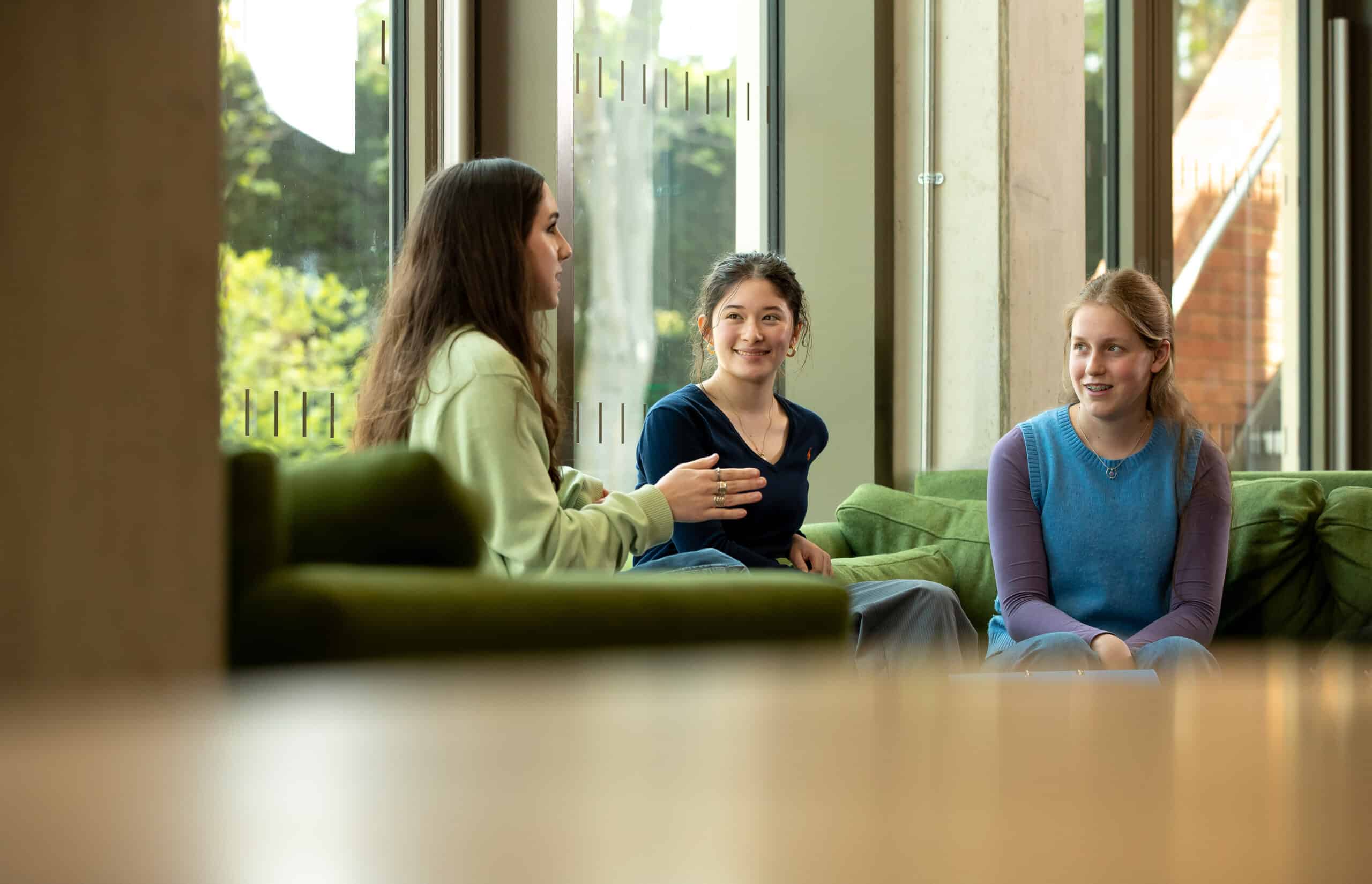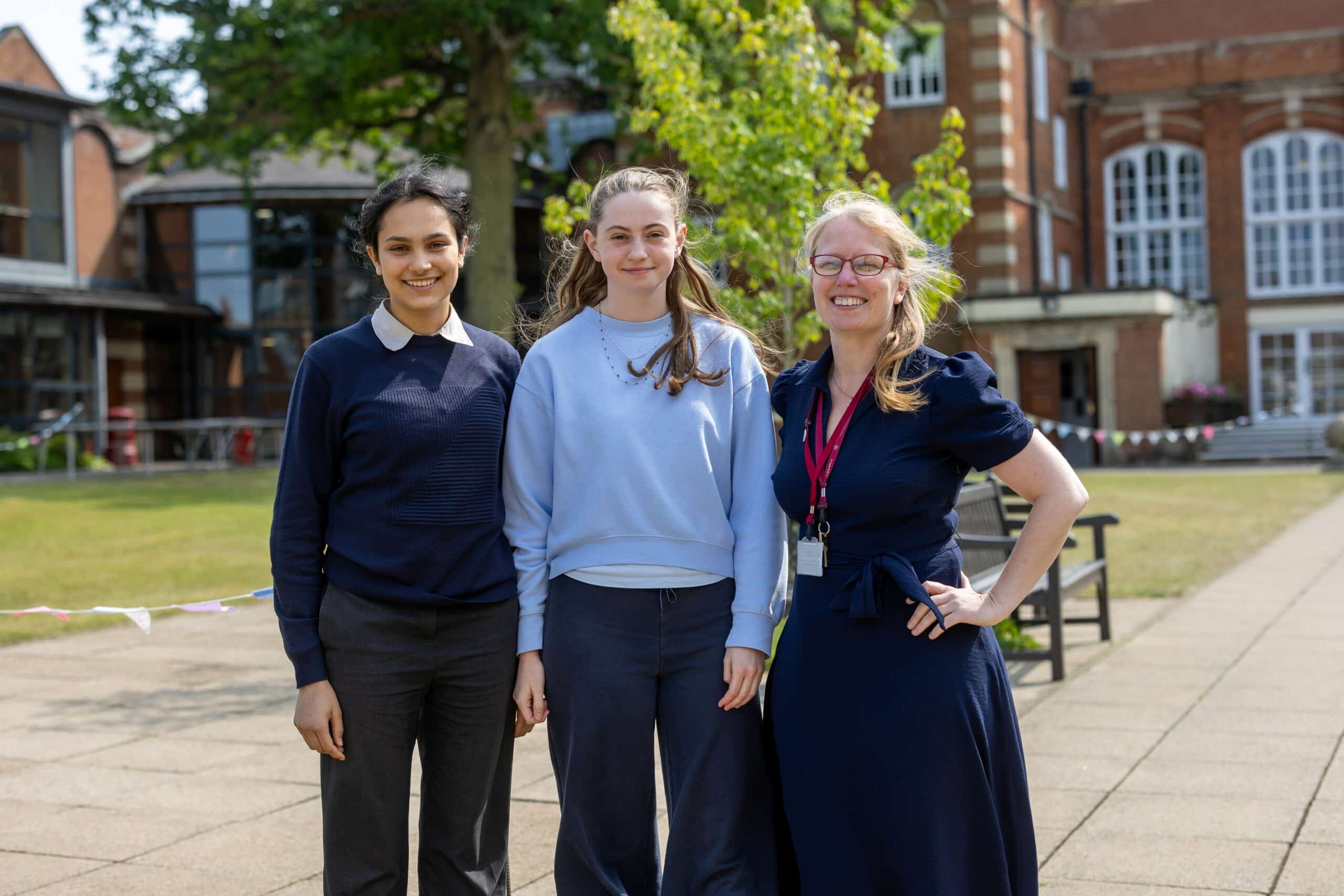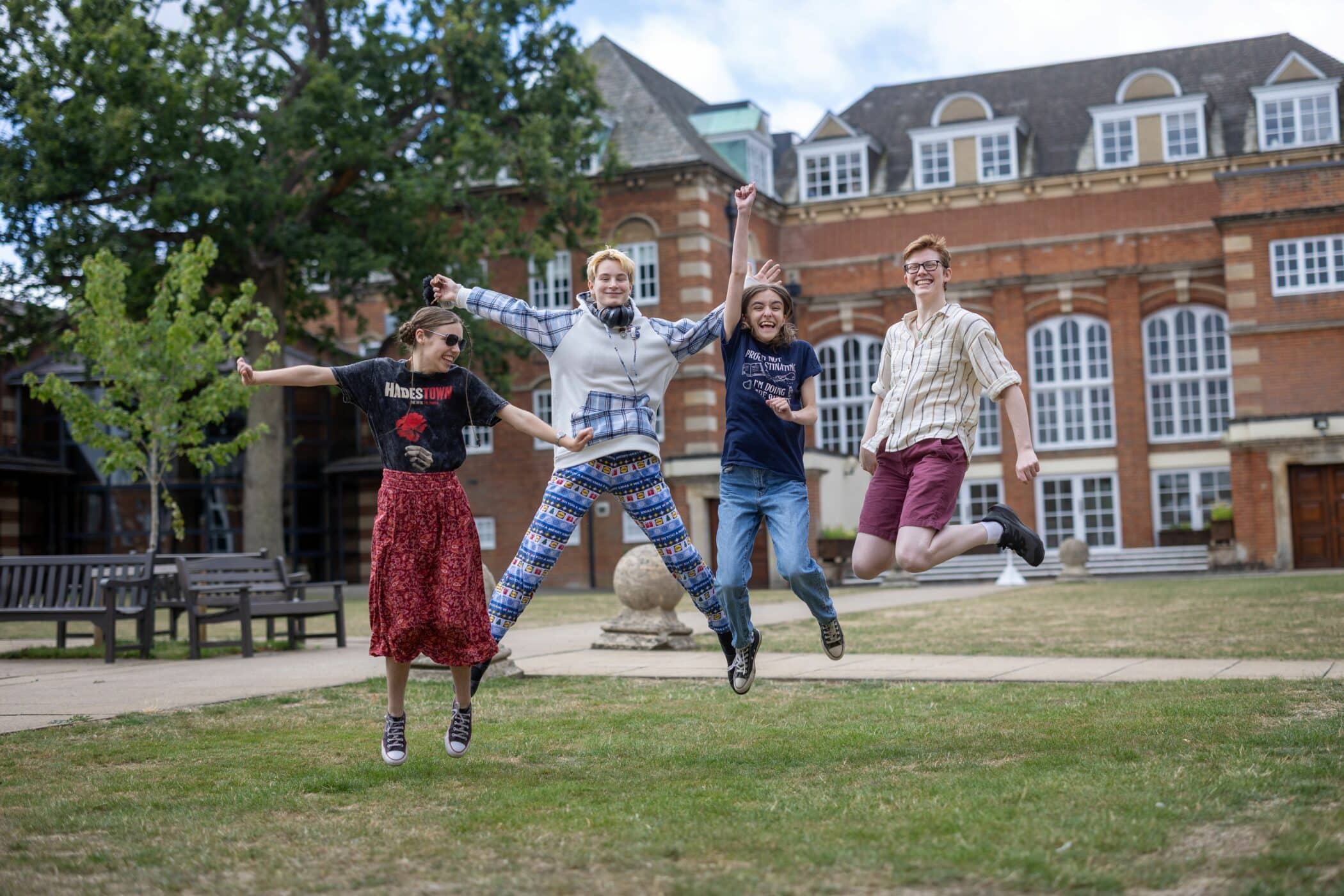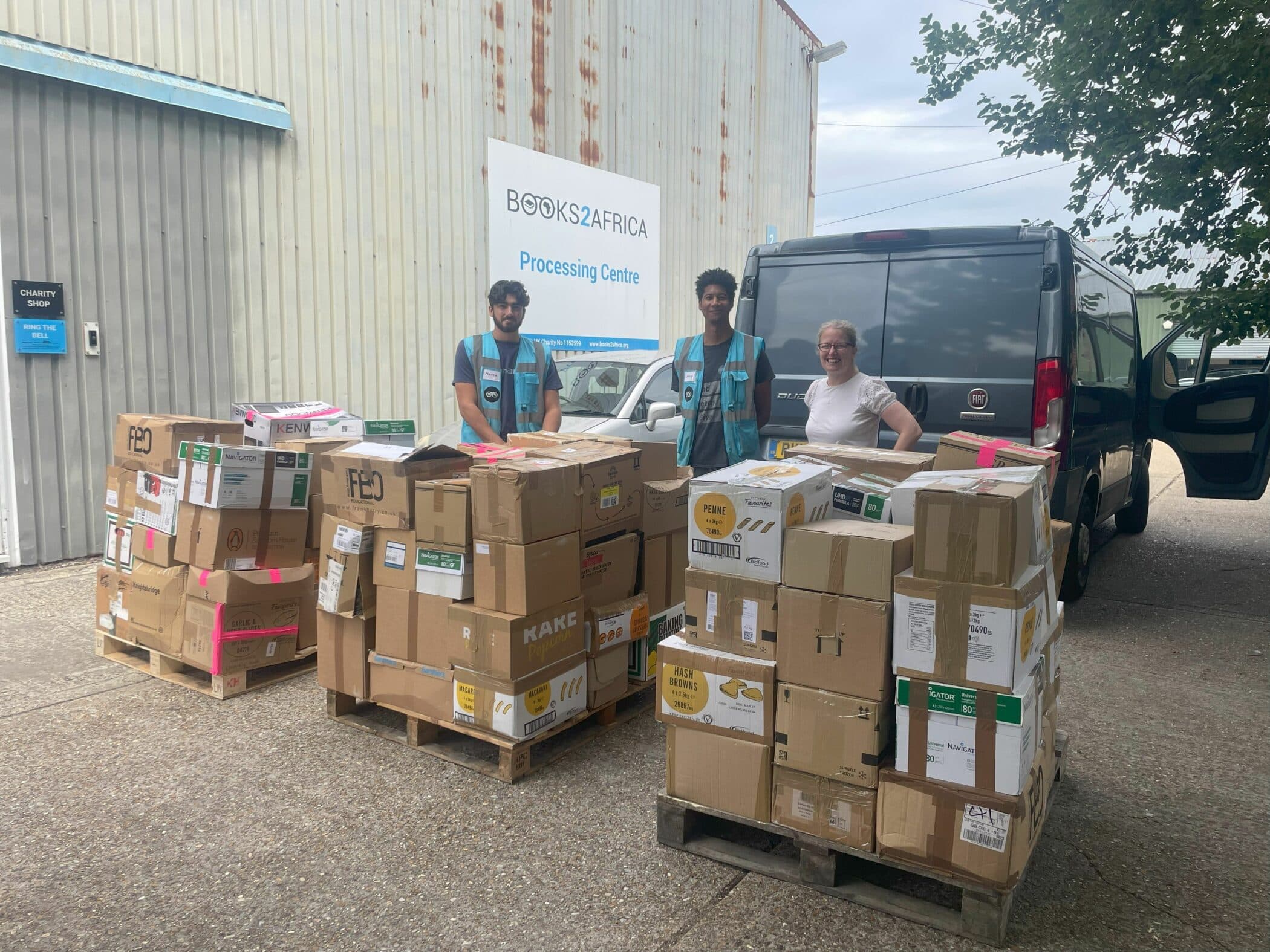Amelie (Eco Prefect), Priya (L6) and Mrs Brudenell wrote an article featured on HMC (The Heads’ Conference) website.
We are proud to share how our commitment to environmental responsibility has been highlighted. The blog showcases how young people across the UK, including our very own SHSK students, are turning concern into action in the global effort to tackle pollution.
At St Helen and St Katharine, sustainability is not a bolt-on initiative or a one-off project – it’s a culture that’s carefully embedded into everyday life. From the curriculum to our café, from the sports field to the art room, we are continually looking for ways to reduce our environmental impact. One particular focus has been tackling the problem of single-use plastics – a small but significant step in the wider journey towards a more sustainable future.
Plastic pollution is a pressing global crisis – yet it is often underestimated. A decision as seemingly trivial as reintroducing plastic straws, as seen in the United States in 2024, highlights how deeply society underappreciates the environmental impact of plastic. So how aware are we, really, of the consequences?
According to the United Nations Environment Programme’s Global Plastics Outlook (2022), humans produce more than 430 million tonnes of plastic each year – two-thirds of which quickly becomes waste. Microplastics have now been detected in all parts of the human body, as well as in wildlife across ecosystems, raising serious concerns about long-term health and environmental impacts that are still not fully understood. This is about the air we breathe, the food we eat, and the integrity of the systems that sustain us.
Tackling this crisis demands systemic change – and at St Helen and St Katharine, we believe schools play a vital role in shaping that future.
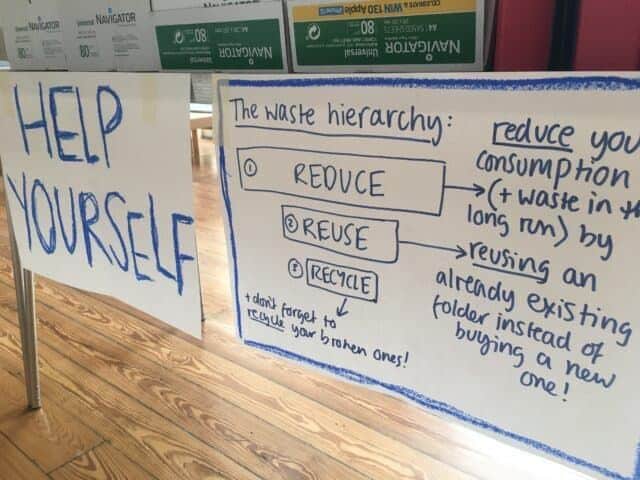
From litter pick to leadership: Students taking charge
At the heart of our eco-efforts is student leadership. Our Eco Council is a dynamic platform for action – organising swaps, assemblies, and competitions that spark meaningful change.
Student-led competitions, such as the annual House Christmas Tree Decorating Challenge, where decorations are crafted entirely from recycled materials, and the House Wheelbarrow Garden Competition, which celebrates creative, sustainable planting, blend environmental responsibility with a strong sense of school spirit.
Student-led clubs and initiatives like “FabSoc” – which gives old clothing a second life as unique, upcycled fashion – showcase student creativity and their deep commitment to waste reduction.
Other grassroots schemes, including clothing swaps, book exchanges, revision guide reuse, and folder swaps, promote a culture of reuse and collaboration, reducing consumption while encouraging resourcefulness and mutual support.
Leadership roles such as our Eco Prefect empower students to champion environmental causes, develop confidence, and build bridges across year groups – strengthening both community and purpose through shared environmental action.
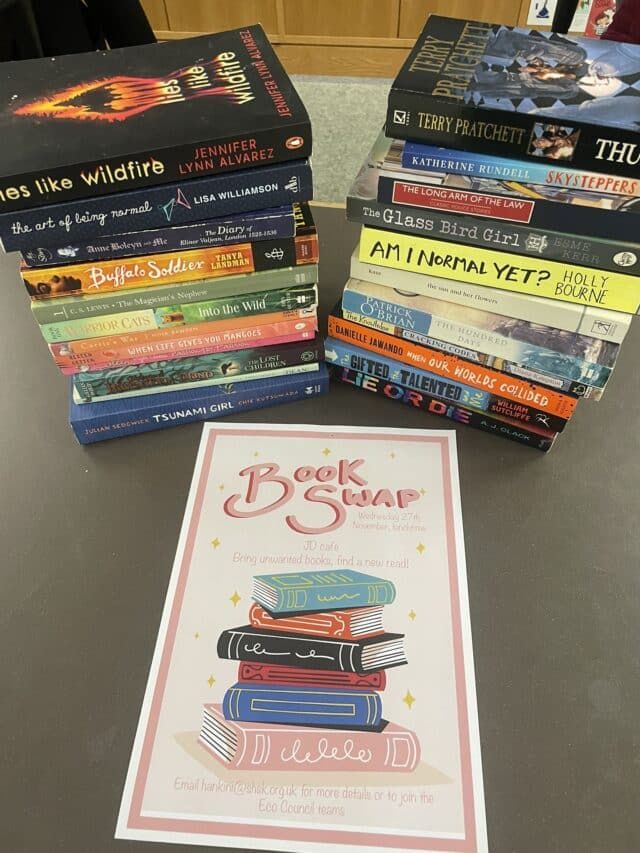
Tackling plastic pollution: Schoolwide change
Plastics contribute significantly to school waste, with lunchtime packaging alone accounting for up to 70% of waste in educational settings. Mindful of this, our approach to plastic reduction is particularly visible around lunch and break times.
Single-use plastic water bottles have been phased out entirely – students are expected to bring refillable bottles, even for trips and events, and visitors and guests are provided with canned water, which is infinitely recyclable.
In our cafés and canteens, single-use plastics have been replaced or reduced wherever possible. Gone are the individual ketchup sachets and plastic cutlery. In their place, we’ve introduced ketchup dispensers, bamboo utensils, reusable crockery, and compostable food containers. A standout success has been our adoption of Vegware – a compostable material made from plant-based biopolymers. These bioplastics are designed to break down in industrial composting facilities thanks to chemical structures that are more biodegradable than traditional petroleum-based plastics.
We also run a discount scheme for those who bring their own reusable coffee cups – an initiative that’s helped cut down dramatically on takeaway cup waste.
The result? Our lunch-related carbon footprint now accounts for just 2% of our total environmental impact – a powerful example of what schools can achieve through practical, science-informed action.
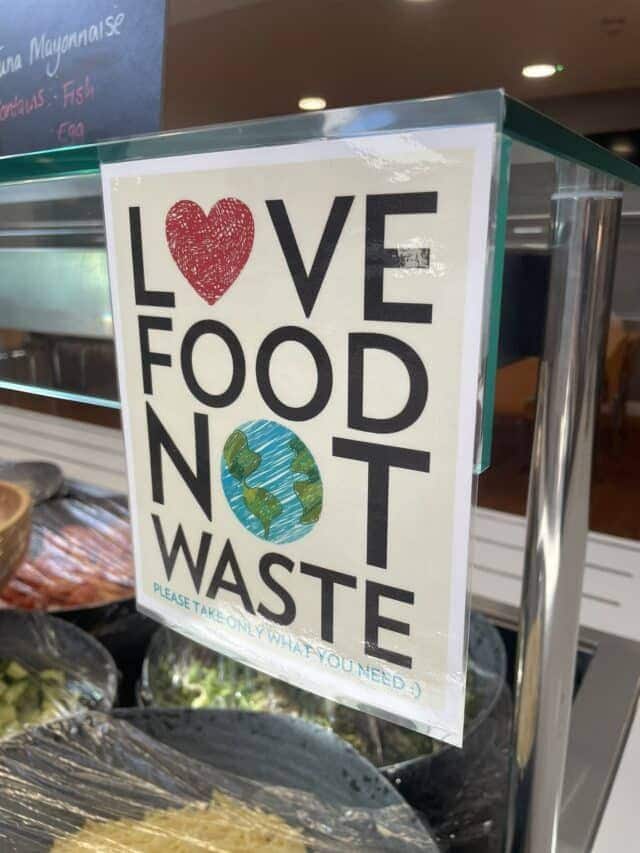
Embedding eco habits into everyday learning
At St Helen and St Katharine, sustainability is woven into learning across a wide range of subjects, encouraging students to explore environmental issues from multiple perspectives.
Our annual ‘Climate Change Fortnight’ – scheduled to tie in with the COP conference – brings sustainability to the forefront. But across all key stages, curriculum leaders are embedding sustainability into their subjects – ensuring that students build not only their academic knowledge, but also the values, critical thinking, and agency to make meaningful change.
In the Sciences, students examine climate change, biodiversity, and energy use; Computer Science explores how digital solutions can support sustainability, from modelling climate systems to considering the environmental footprint of data storage; while humanities and languages explore global citizenship, environmental ethics, and sustainable living.
Creative subjects also play a key role: in Art, students consider the environmental impact of materials; in Food & Nutrition, they investigate sustainable food practices; and in Drama, the department is rethinking its approach to productions – reusing and repurposing costumes and sets wherever possible, and hiring items rather than buying new.
Even PE promotes sustainable choices, including sourcing particular items of school PE kit that are made from recycled materials and uses less water to produce, and avoiding plastic water bottles or cans for after matches for our students as they should have water bottles for their personal use.
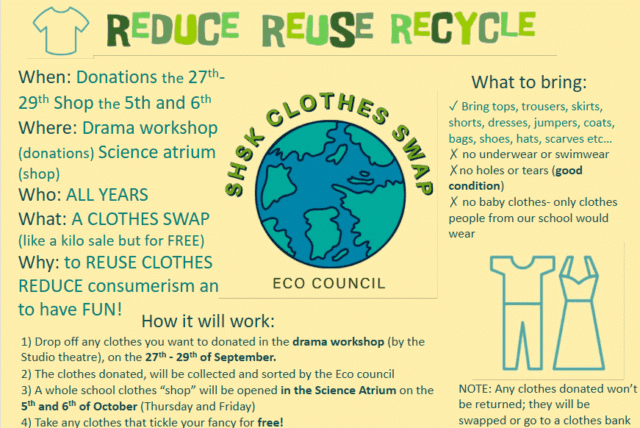
Facing the challenges ahead
We know this is just the beginning. Our next goals include improving recycling behaviours – particularly for soft plastics – enhancing understanding of industrial composting systems, and launching a stationery recycling scheme.
We also aim to combat greenwashing and misinformation by fostering critical thinking across the curriculum, helping students navigate the complex media landscape surrounding environmental claims.
A message for other schools
Our experience shows that embedding sustainability into every aspect of school life – not just through isolated projects but in curriculum, culture, and leadership – transforms students from passive learners into passionate changemakers.
Tackling plastic pollution is just one part of the sustainability puzzle, but it offers a powerful entry point for inspiring lifelong environmental awareness. By starting small, staying consistent, and trusting young people to lead, schools can help build a more sustainable future – and prepare students not just to understand the climate crisis, but to shape the solutions.

